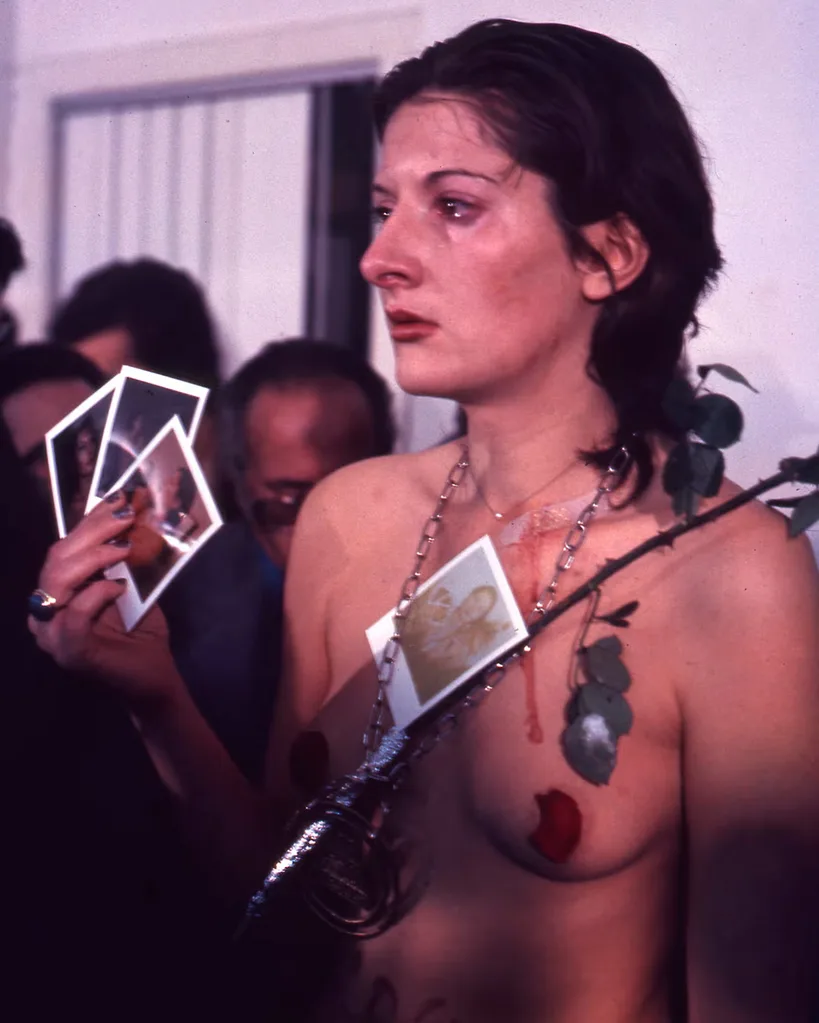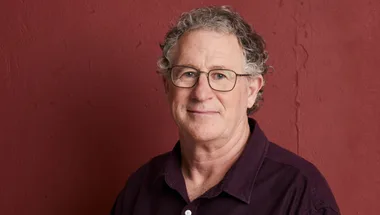I’ve been thinking about this a lot over the course of the trial of Dominique Pelicot and his fellow accused: what would a woman do to an unconscious man if she thought no-one would find out?
Because we know now what men would do.
And not just some men. Many men. So many men in fact, they had a nickname for them during the trial, Monsieur Tout Le Monde – Mr Everyman. Because the men who joined Pelicot in the dock were bakers, they were journalists, they were prison officers, they were accountants, they were young, they were old, they were single, they were married, they were fathers to daughters.
But they all had one thing in common, a desire to dominate, to defile, to control, to penetrate, to humiliate. A love of rape.
Some of them knew Gisèle Pelicot, some of them made small talk with her in the street, in the boulangerie, all the time knowing what she didn’t, that they had raped her as she lay unconscious in her bed and her husband had filmed them.
And so I asked myself, what would a woman do to an unconscious man if she thought no-one would find out? There was another case in the UK recently, the case of Natalie Shotter, a 37-year-old mother of three who had a rare night out with her friends, drank too much and walked home alone, collapsing on a park bench where a man found her, where a man watched and waited and then raped her until her body gave out and she had a heart attack and died.
That’s what another man did when he thought no-one would find out. That woman wasn’t safe walking home, Gisèle Pelicot wasn’t safe in her own home. I’ve thought also of the performance art of Marina Abramovic´ during this trial, the one she did in Naples in 1974 where she laid out a table with 72 objects on it and invited those who attended her exhibition to do what they wanted to her, as she stood – vulnerable – before them. Then they cut her clothes off.
I stood in front of that reconstructed table and those 72 objects when I attended her show at the Royal Academy last year. It had an impact on me that I wasn’t expecting. There were knives, a gun, a bullet, an axe, a saw, alongside objects that can give pleasure: a feather, a rose, a hairbrush, a drink.
Guess which ones the men picked up to use on her? They cut her, they defiled her, they did what they would with her while she stood there in front of them. Even in a gallery (nice men who go to galleries) they saw her as a piece of meat, not a human, just as those men had who stood in the dock in Avignon these past couple of months.
Marina Abramovic´ ’s hair went grey overnight at the shock of what men did to her. Those men, Messieurs Tout Le Monde, didn’t think they were rapists. They would agree, I am sure, that the man who raped and killed Natalie Shotter is, but not them.

And here is where one very specific problem lies, the issue of consent, because most men do not understand it. They see rapists as “other”, they don’t know that stealthing (where a man removes a condom without a woman’s knowledge) is rape, they don’t know that having sex with your sleeping wife is rape, and apparently these men didn’t know that if you go to a particular area of the internet and find a site which has another particular area called “without her knowledge” then it is what it says on the tin, it is seeking out someone who has not consented to sex and so that made them all rapists. No ifs, no buts.
And France had a moment to teach the men of this world about rape; the justice system could explain consent to all those at home who have been following this trial, it could have explained that if you have sex with a woman who is unable to give consent every time then you are a rapist.
But it seems to me that the French justice system does not understand consent and so how could it send this message to others? Because rape in France carries a maximum sentence of 20 years, and yet only Dominique Pelicot received that. The court sentenced the other men to between three and 15 years. Some of them walked free from court having served time on remand, others will serve only a couple of years of their sentence.
A rapist is a rapist is a rapist. What difference is there between that opportunistic killer in the park and those men who sought out a website to penetrate a woman, to insert themselves inside her body, without consent? You could argue she has more right to believe she is safe inside her own home than passed out in a public park.
You could argue that makes the rape more aggravated, but clearly the court did not think so, and those light sentences tell us one thing: that somewhere in the deep, dark recesses of those judges’ minds, they also believed that Dominique Pelicot had a right to give consent for his wife, so these men were, in some ways, victims of him too and should not be punished in the same way as he has been. (Before the early ’90s it was legal to rape your wife in the UK. In Australia, it was still legal in some states and territories in the late ’80s, with the Northern Territory last
to make it a crime, in 1994. The law changes, but minds don’t.)
There’s another issue we need to talk about, and that is sexual health. One of the rapists asked Pelicot if his wife was free of diseases because he was allowing men to penetrate her without any protection. Her health has suffered as a result, she made many trips to the doctor and, I believe, was diagnosed with numerous STIs.
Men don’t care about STIs, they care about getting women pregnant, of getting “caught” or “trapped” by women because that would have ramifications for them, but they don’t care about compromising their health – although that particular rapist did, maybe because if he went home to his wife and gave her something she would put a stop to his late-night raping.
But STIs have long-term and devastating impacts on female health. HPV, which can cause genital warts, has been linked to cervical cancer. It is an STI that men don’t worry about, yet it could kill us. Chlamydia can cause infertility
in women, yet mostly it shows no symptoms, certainly not for men who carry it and pass it on to us. Herpes will lie dormant in your system forever. There is no cure, and for some women it is deeply debilitating;
today I saw a headline linking it to Alzheimer’s. HIV used to kill people, now people live with it, but their health is compromised as a result.
Gisèle Pelicot had no opportunity to protect her own health, but this concern would be way down the list of priorities for men because they don’t suffer like women do and so they don’t need to understand it.
Another recent case in the UK of a man who did what he wanted to a female when he thought no-one would find out: the father of 10-year-old Sara Sharif. I don’t want to list here the abuse he wreaked on her tiny body, but this man’s history was littered with allegations from his former partner about his abuse of her.
Those allegations were heard in court, they were heard by the court-appointed advisory service, and yet because we don’t take seriously violence against women, this child was put into her father’s care and he killed her, slowly and painfully.
I listened to the radio the next day, a discussion between the presenter and some expert about how could they have possibly known what he was doing behind closed doors – they came up with nothing. But they did know, they knew he had harmed another female in his life, but the suffering of women and children is not taken seriously, and if it had been, that little girl and many kids like her would still be alive because the fact he likes to harm his wife says something about his psychology.

Dominique Pelicot had a history of being abused as a child, as many of these people do, as many perpetrators of all types of crime do, not just violent crimes. If, for just one generation, we took seriously violence against women and children, do you know what an impact that would have on society? If you believed women just for once, instead of believing the clichés men say about them to cover up their crimes.
Taking violence seriously against women would have meant each of those rapists receiving a 20-year sentence. It would have been a message to all the men in the world, an education in consent, an opportunity to acknowledge that more men than we like to think are Messieurs Tout Le Monde.
As for Gisèle Pelicot, she is a heroine to me and all women I speak to. There are no words to express our admiration for her. She is all of us, and she insisted on that trial being public because she wanted other women who have been raped to know that if she had the strength to go through that trial, given all that happened to her, so could they. “I’ve decided not to be ashamed, I’ve done nothing wrong,” she said. “They are the ones who must be ashamed.”
In many ways this was an open and shut case. The court sat through hours of footage showing Gisèle unconscious, silent, as those men did what they wanted to her limp body. If she had been awake, if she had spoken, if she had put one foot “wrong”, then that would have diverted all attention away from the men and onto her behaviour, as is so often the case. It is easier to find fault in women than hold a man accountable for his crimes.
So, for them, she was a “perfect victim”. That’s how they like us: silent, passive, unresponsive. Well, she is not anymore.
Do any of us women feel safer knowing that 51 men in Avignon were jailed? No, we feel more unsafe than ever. Because we know these Messieurs Tout Le Monde, they are the men who joke with us at the bakeries, too. But what would they do to us if they thought no-one would ever know?
And so back to the question I asked at the start: what would a woman do to an unconscious man if she thought no-one would find out? I don’t think Mesdames Tout Le Monde would harm him, we don’t carry the same weapons they do.
I think she would take his shoes off, let him sleep in his socks. I think she would lay a blanket over him, perhaps put a glass of water beside his bed.
Then she would turn out the light and leave him to sleep.
This article originally appeared on annawharton.substack.com









